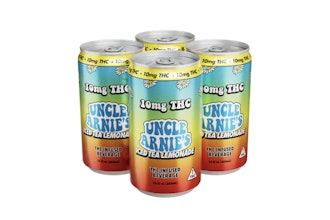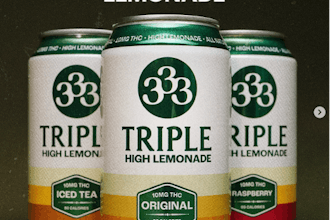HARTFORD, Conn. (AP) — Advocates are celebrating the nation's most sweeping legislation requiring special labels for genetically modified food, but to take effect the new Connecticut law will need help from lawmakers in neighboring states.
The bill, which Gov. Dannel P. Malloy said he will sign into law, calls for packaging on food that is entirely or partially genetically engineered to include the words "Produced with Genetic Engineering."
In an effort to shield producers from competitive disadvantage, Connecticut's legislation stipulates that GMO labels would be required to appear on products in the state's supermarkets only after four other states, including one bordering Connecticut, enact similar rules. It also requires the aggregate population of any Northeast states (Maine, New Hampshire, Vermont, Massachusetts, Rhode Island, New York, Pennsylvania or New Jersey) that enact such a law to comprise a total population of more than 20 million people.
"It is truly a landmark for the nation, because it will provide critical impetus and incentive for the industry itself now to support this kind of measure," said U.S. Sen. Richard Blumenthal, a Democrat. "They don't want a patchwork of different laws across the nation with different requirements and mandates."
Genetically modified food results from seeds that are engineered to resist insecticides and herbicides, add nutritional benefits or improve crop yields. Critics say genetically modified organisms can lead to serious health conditions and harm the environment, despite assurances from the federal government and many scientists who say the technology is safe.
In 2013, 95 bills related to the labeling of genetically modified food were introduced in 28 states, according to the National Conference of State Legislatures. Some have failed and others are still pending, but few go as far as Connecticut's law.
In addition, Blumenthal has co-sponsored bipartisan legislation in Congress that would require the U.S. Food and Drug Administration to label genetically engineered foods. Despite his hopes that the industry will come to see the futility of opposing such legislation, he predicted lobbying will continue to delay federal action in the immediate future.
Opponents call labeling a "scarlet letter" that is unnecessary and misleading.
"To make labeling mandatory would suggest that there's something different or worse in these products, when all of the science suggests that this isn't the case," said Chris Cooper, a spokesman for the Biotechnology Industry Organization, a lobbying group that represents makers of genetically modified seeds.
He said the group continues to oppose mandatory labeling, but did not say whether it would challenge Connecticut's new legislation.
State lawmakers attributed the law's passage to grass-roots efforts by farmers' groups, organic food advocates and parents concerned the food they feed their families.
"We followed the example of so many of these people in the grass-roots level who every day have done something to move this cause forward," said Rep. Philip Miller, D-Essex, at a news conference last week. "They've spoken to their neighbor, their friends, members of their family."
Having overcome the food industry's lobby in Connecticut, advocates are encouraging the passage of similar laws in other states to pressure the industry into labeling genetically modified food nationwide.
The passage of laws in Massachusetts, Vermont and New Jersey in the next year is "promising," according to Doug Farquhar, program director at the National Conference of State Legislatures. The legislatures in Maine, Pennsylvania and New York are also considering labeling bills this year, and voters in Washington state are scheduled to vote on the issue in a November ballot initiative.
State Senate President Donald Williams Jr., D-Brooklyn, called on co-sponsors of the federal legislation to "lead the charge" for mandatory labeling in their respective home states.
"If a handful of states with a significant population change and adopt the labeling legislation and requirement, then the companies of necessity due to economy of scale will be forced to label on a national basis," said.






















